Michael Sprick clutched his mom’s hand in pre-op room 1.
Michael, 11, born with Treacher Collins syndrome—same as the boy in the hit movie “Wonder”—awaited surgery on his ear.
John Girotto, MD, a Spectrum Health Helen DeVos Children’s Hospital pediatric plastic surgeon, would soon attempt to reshape Michael’s left ear, which had folded in upon itself. He would also take fat tissue from Michael’s thigh and inject it under his eyes for a more uniform facial structure.
“I’m a little bit nervous,” Michael said cheerfully. “But I’m excited to be the first kid to do the aquariums. I’ve never been to one before.”
Aquariums?
In a new program at Helen DeVos Children’s Hospital, children in the operating room are surrounded by television monitors that broadcast live feeds from zoos and aquariums around the country.
John Huntington, MD, the division chief of pediatric anesthesiology, in cooperation with the children’s hospital Child Life team, reached out to zoos and aquariums to obtain permission to stream footage to help calm children prior to surgery.
As staff wheeled Michael’s bed into operating room 2, his mom, Shanda Sprick, walked behind him.
They found themselves surrounded by seven screens showing streams of colorful fish, stingrays, a shark and jellyfish.
It’s just like a trip to the zoo. It’s very useful for kids who have any anxiety or developmental issues, for really tense kids. It’s not the operating room. It’s going to the zoo.
No one could blame the Zeeland Christian Elementary School fourth-grader for feeling hungry. Michael loves fish—eating them, that is. He asked his mom moments before surgery if they could eat seafood after surgery.
That’s the goal, according to Dr. Huntington—to take young minds off a scary surgery and get them focused on something else.
“My kids have gone through procedures and I’ve gone through procedures,” Dr. Huntington said. “There’s a lot that goes on during the induction of anesthesia and it’s a very stressful time. We just felt we needed to refocus on the child during that process.”
In control
In an arena where kids have very little control over what’s happening, being able to pick whether to watch fish, elephants or monkeys can give a child a sense of control.
“It’s something they can have a say in,” Dr. Huntington said. “That would be his one little level of control in this uncontrollable thing. It’s an opportunity for them to get a hold of something and own it. It gives them an opportunity to make it primarily enjoyable for them.”
On that particular morning, the feed came from Tennessee and Georgia aquariums.
“We have all this great video equipment in the room,” Dr. Huntington said. “It almost does feel like you’re walking underwater when you’re in that room.”
Dr. Girotto, who serves as co-medical director of the Helen DeVos Children’s Hospital operating rooms, said he’s a fan of using technology to make patients more comfortable.
“This is a really creative, fun way to make stuff not scary,” Dr. Girotto said. “We just go to the zoo. It’s just like a trip to the zoo. It’s very useful for kids who have any anxiety or developmental issues, for really tense kids. It’s not the operating room. It’s going to the zoo.”
The monitors continued playing for much of Michael’s three-hour surgery. Even though he was out while Dr. Girotto rebuilt his ear, the aquarium scenes seemed to cast a sense of calm across everyone in the operating room.
“I find myself staring at it,” Dr. Huntington said, as Dr. Girotto skillfully placed tiny pieces of cartilage and tissue to reshape Michael’s ear.
The serenity of the sea was a welcome change for Michael, who spent his early years in an orphanage in China.
Shanda and her husband, Gary Sprick, adopted Michael five years ago. The Spricks also adopted their son, Simon, now 12. They have three birth children: Garrison, 13, Noel, 11, and Penny, 8.
Simon and Michael came from the same orphanage.
“I contacted the woman who runs the orphanage and asked, ‘What can I pray about for you?’” Shanda said. “She asked, ‘Can you pray for Michael? No one will ever adopt him because his pictures look so bad.’”
Treacher Collins syndrome affects the cranial bones.
Michael’s face was droopy and the bones that should have formed under his eyes didn’t. His left ear was folded over and his ear drums fused together, inhibiting his hearing.
“If he had stayed in China, who knows what would have happened,” Shanda said. “He was barely hearing anything. We discovered he couldn’t see so we got him glasses.”
And then there are the surgeries.
‘Grateful, joyful’
Michael’s aquarium surgery was his fourth or fifth time in the operating room.
It’s hard to keep track, Shanda said.
There are fewer than 20,000 Treacher Collins syndrome cases in the U.S. each year. Shanda said finding Dr. Girotto came as a relief.
“It’s not something you run across very often,” she said. “Just to have somebody that knew about it and knows what to do and interacts with Michael so well is just amazing.”
When Dr. Girotto visited Michael in the pre-op room just prior to surgery, he told the doctor he had one question.
“Will I be able to wear ear buds after this surgery?”
Although Dr. Girotto said that likely would happen sometime in the future, it probably wouldn’t be possible after this surgery.
About two hours into the procedure, as Dr. Girotto shaped the ear, he told the OR staff it looked promising that Michael might just be able to wear earbuds after recovery from this surgery.
Following surgery, when Dr. Girotto told Shanda that Michael might be able to wear earbuds after all, she smiled with delight.
Shanda said her son loved the aquarium feed.
“He just stared at the screen,” she said. “It was fun. It was something interesting for him to look at to take his mind off things. I loved watching Michael watch the fish. He wasn’t frantically trying to see what was happening around him. They were sticking monitors on his chest and he hardly noticed. He also had something to look forward to in the operating room. What an incredible gift.”
Michael, who is recovering well, said he loved the aquarium feed.
“I liked looking at the fish,” he said. “I liked it so much better with the fish than before when I had my other surgeries. I felt like I was in an aquarium.”
Two weeks after surgery, Dr. Girotto removed Michael’s ear protector. It was the first time the family viewed his new ear.
“He loved it,” Shanda said. “We compared the before and after. I think it is incredible.”
Shanda said she’s proud of her son, his bravery and his attitude.
“If you want to feel good about yourself, spend time with Michael,” she said. “Michael loves love. He loves to play with Legos, ride his bike and he loves to be a friend.
“He’s one of these kids at school that everyone knows and likes,” she said. “He makes you feel good, saying things like, ‘This is the best meal ever, you’re the best mom ever, you’re the best sister ever.’ He’s just got this grateful, joyful personality.”
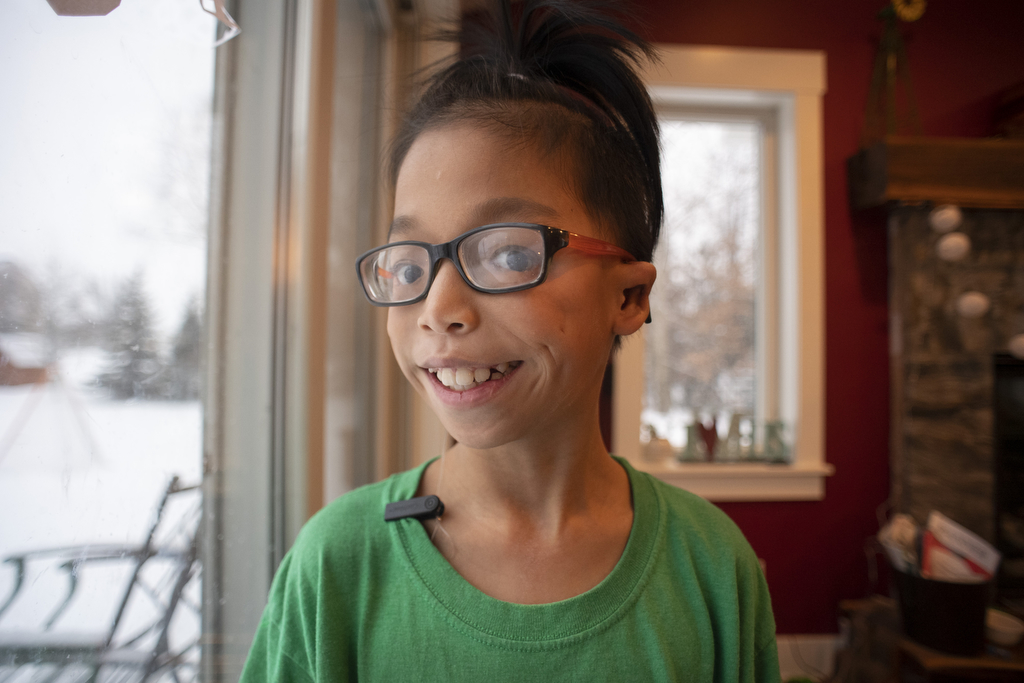
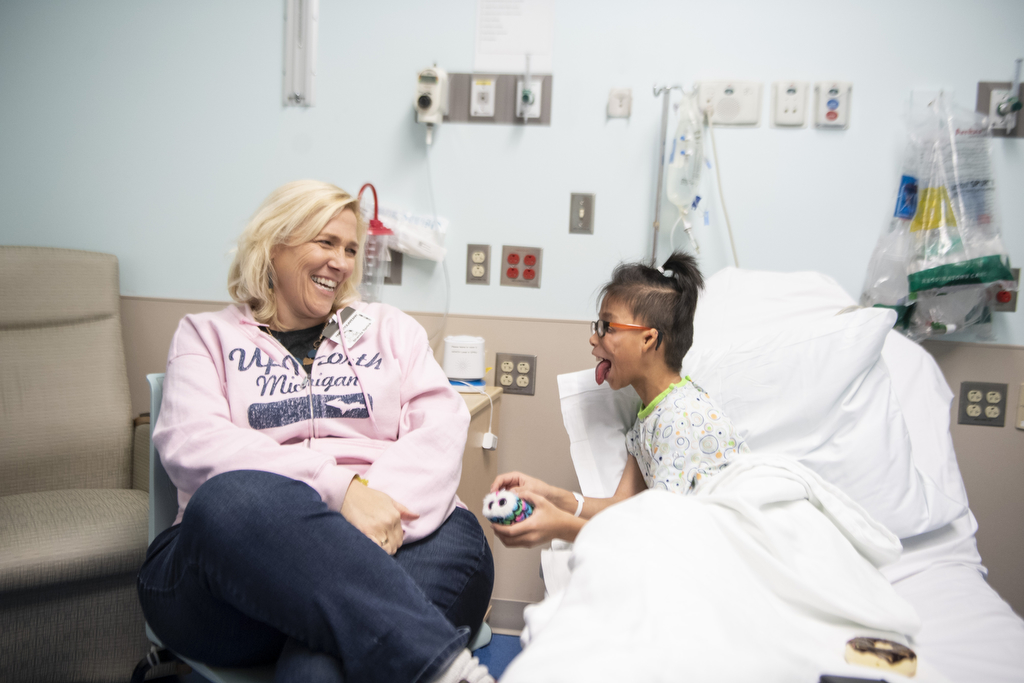
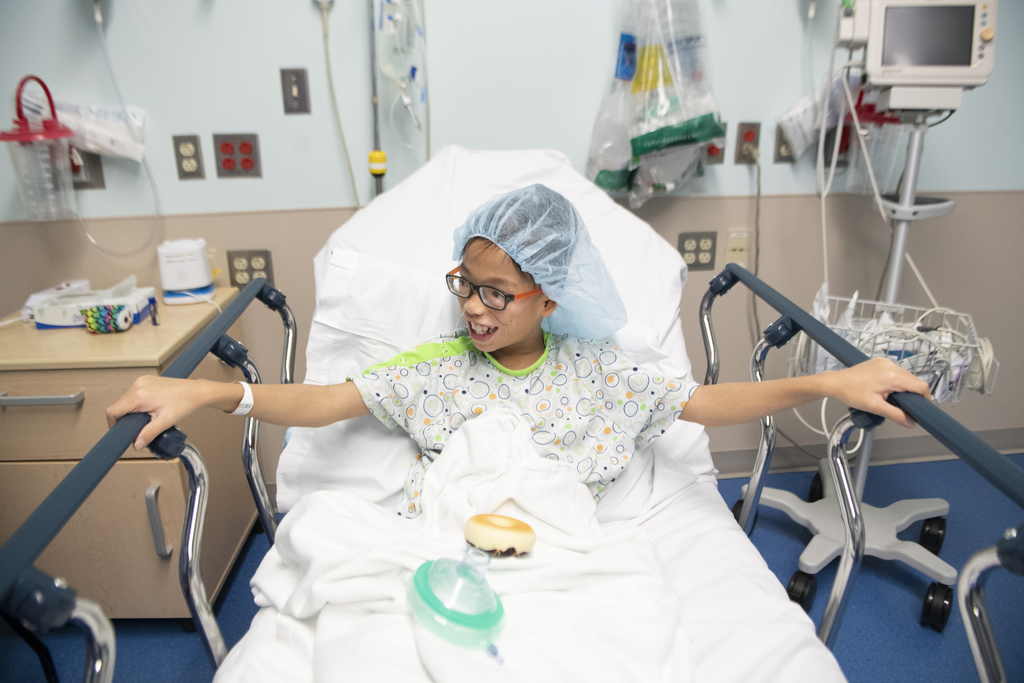
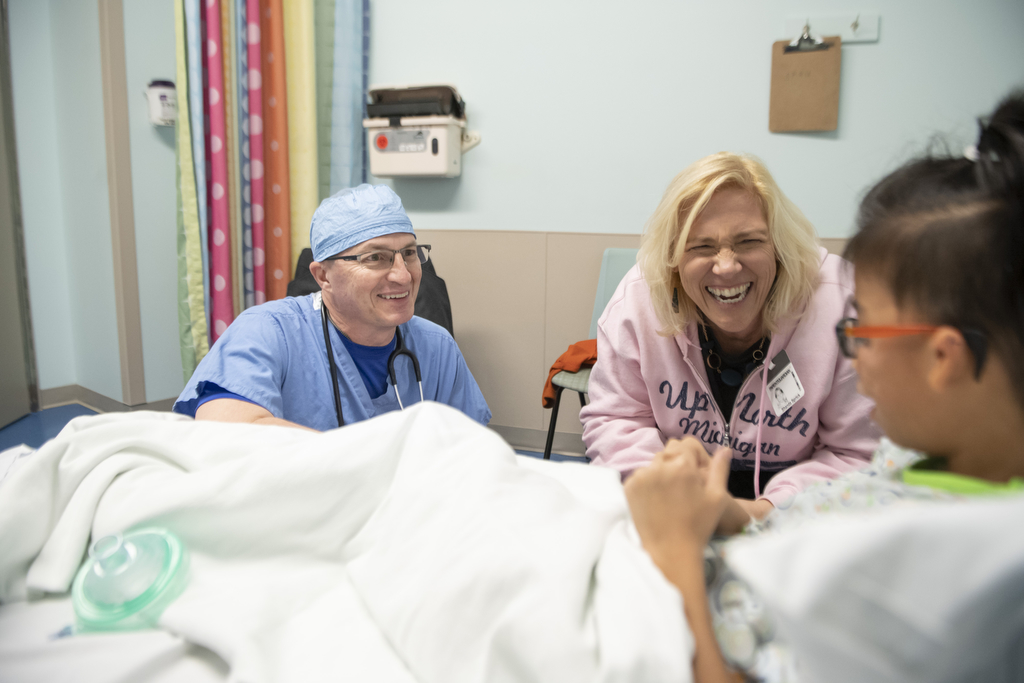
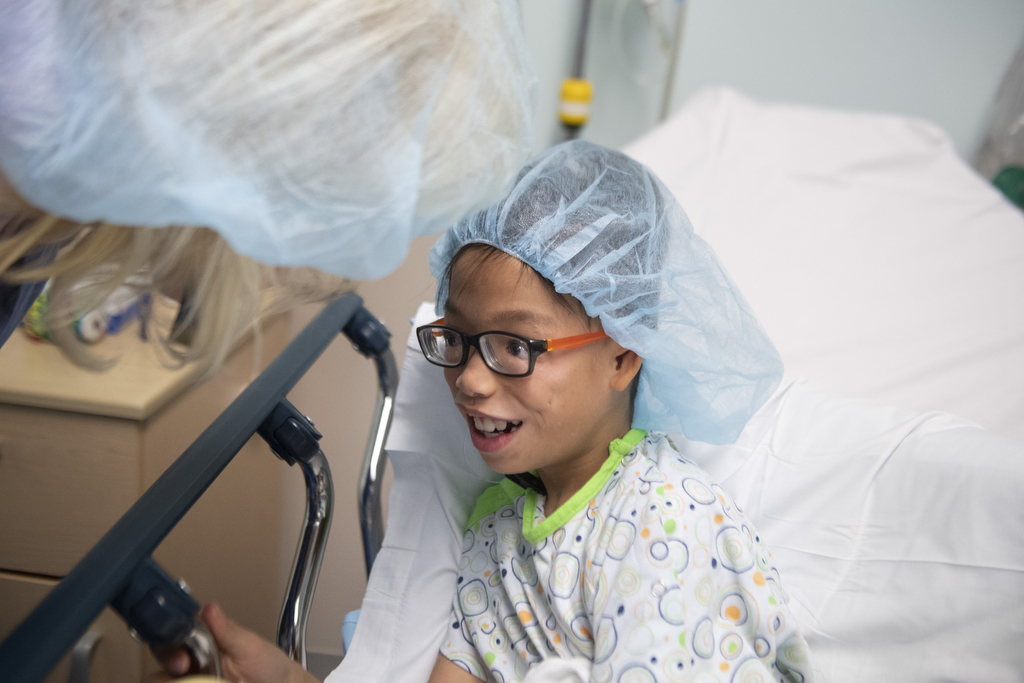
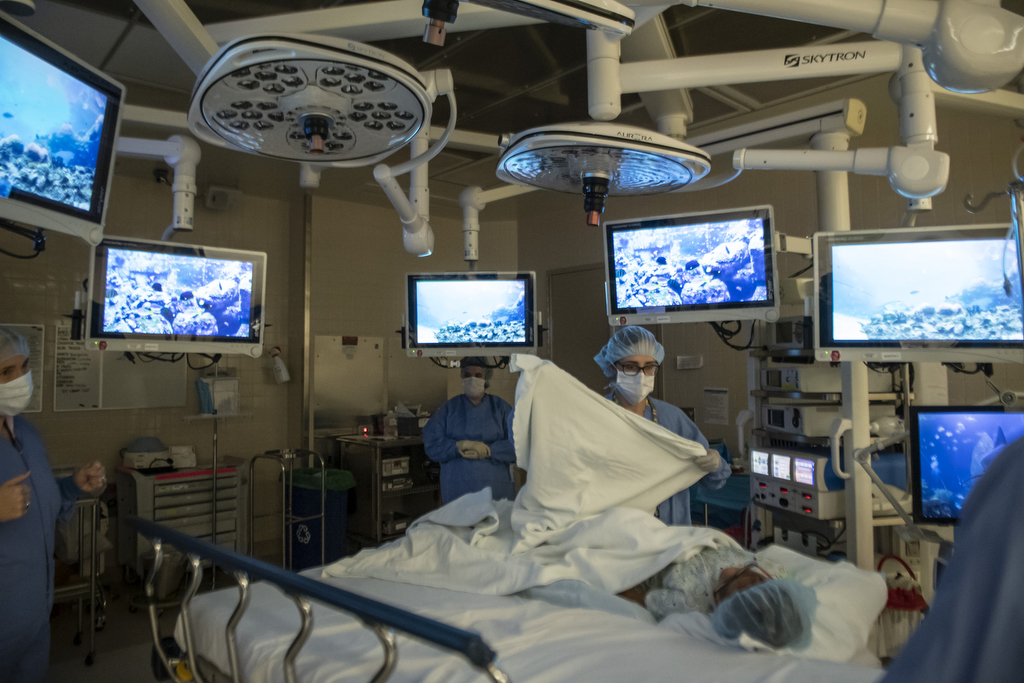
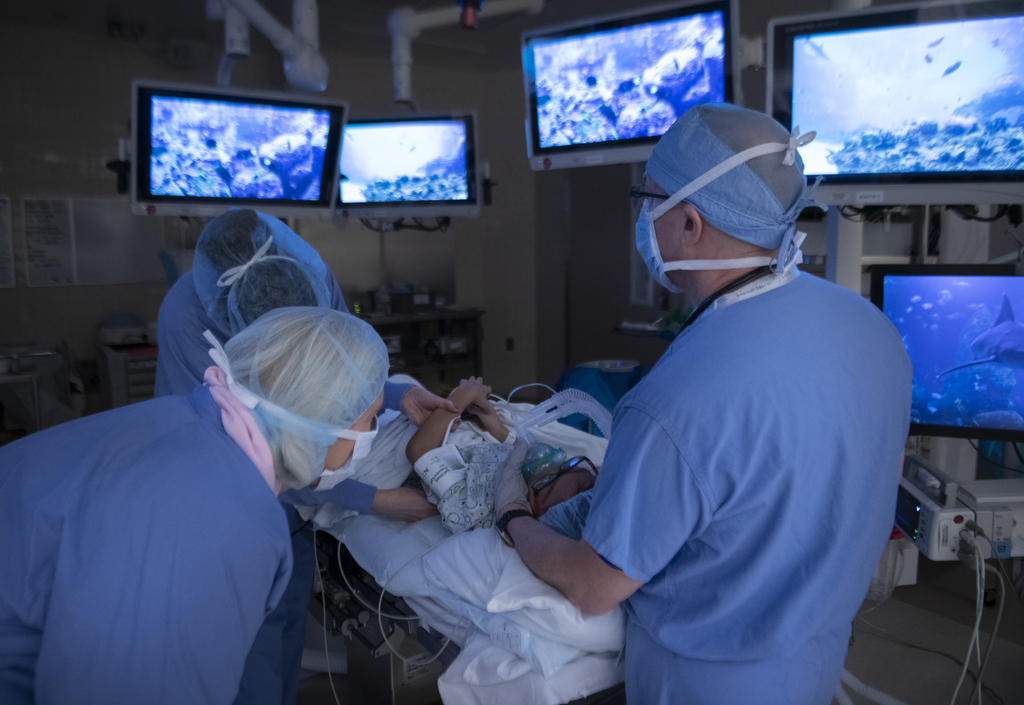
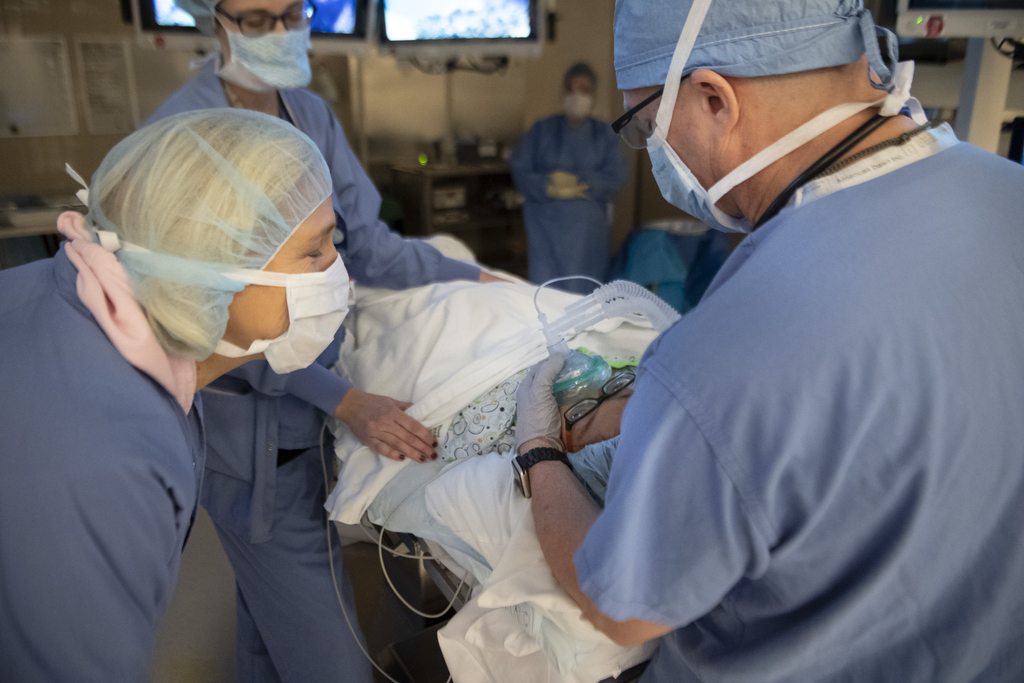
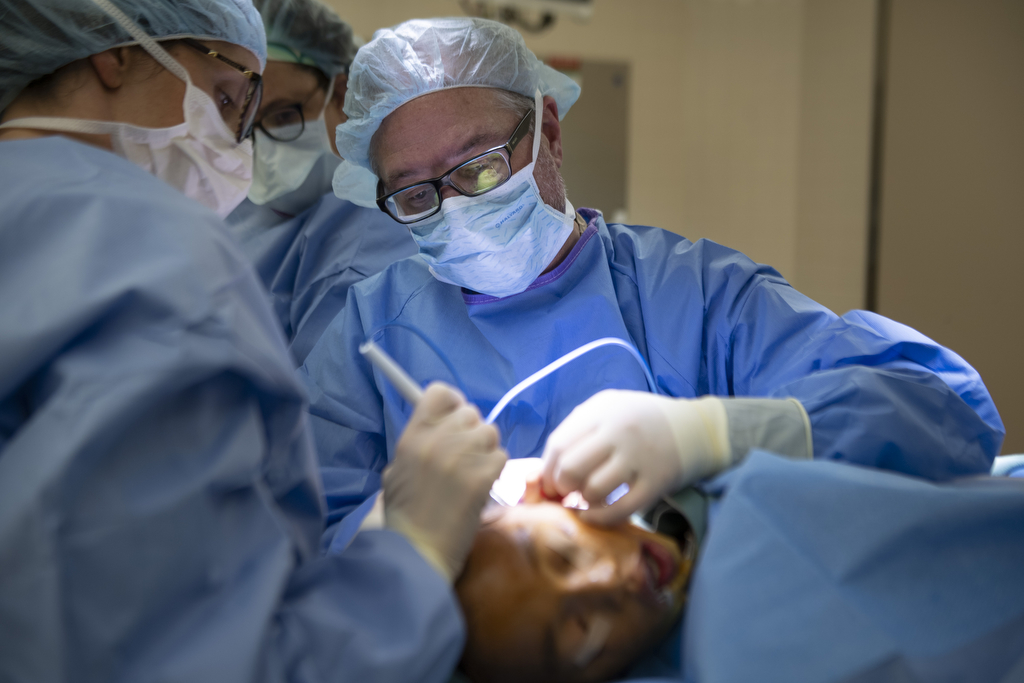
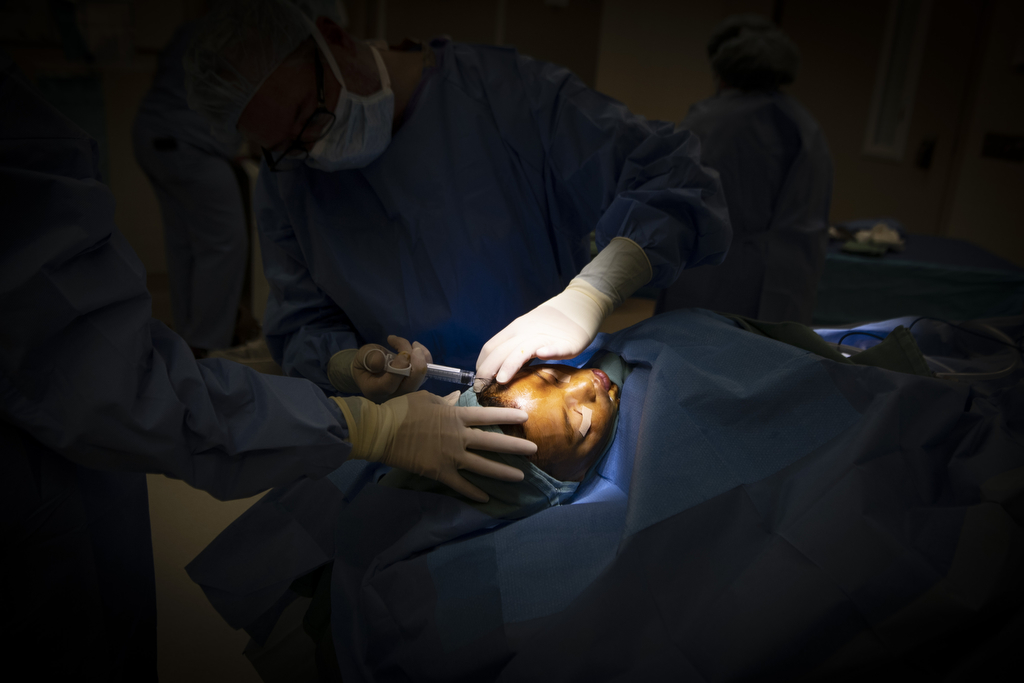
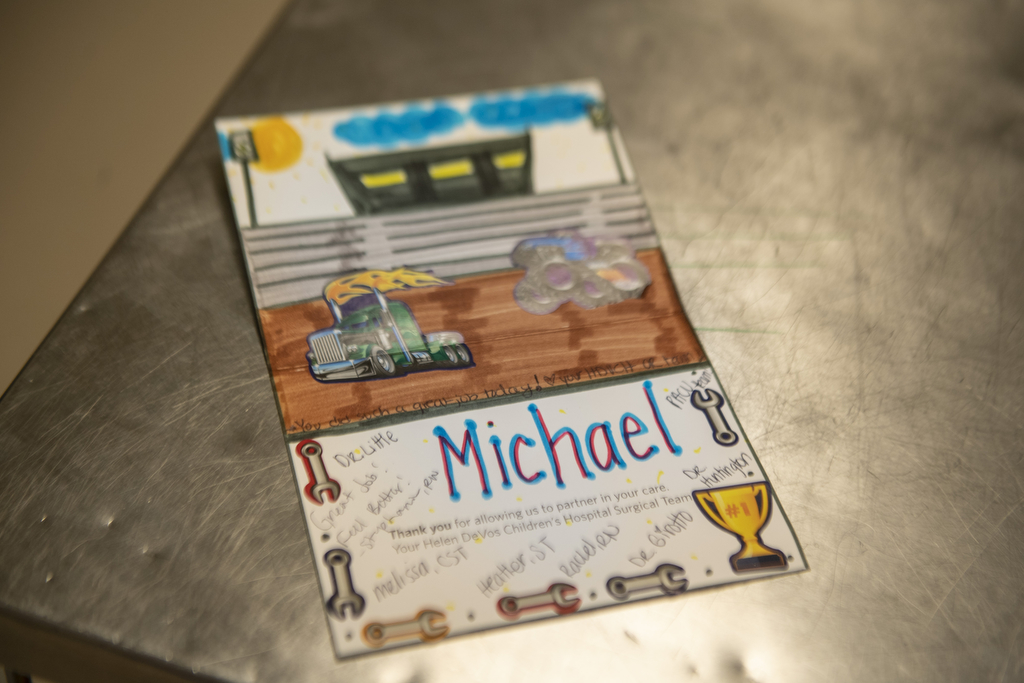
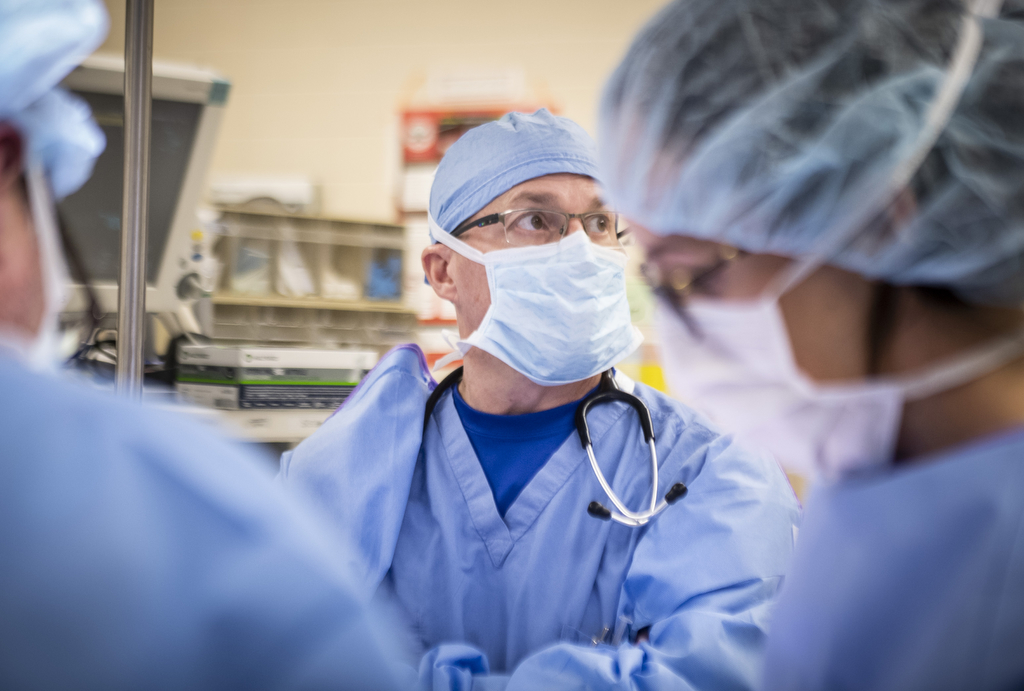
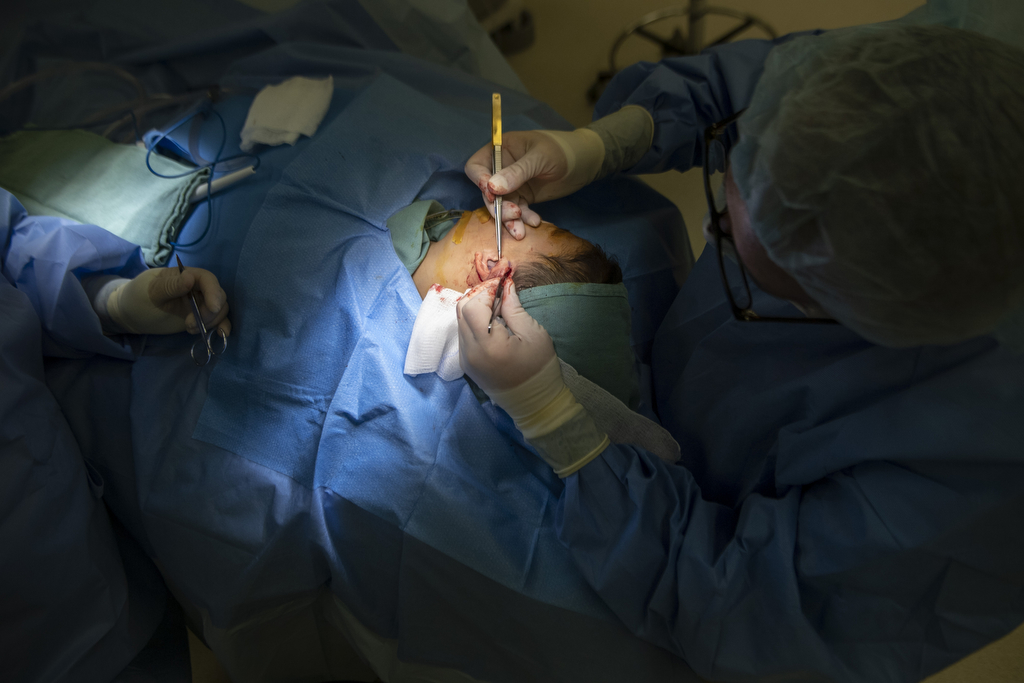
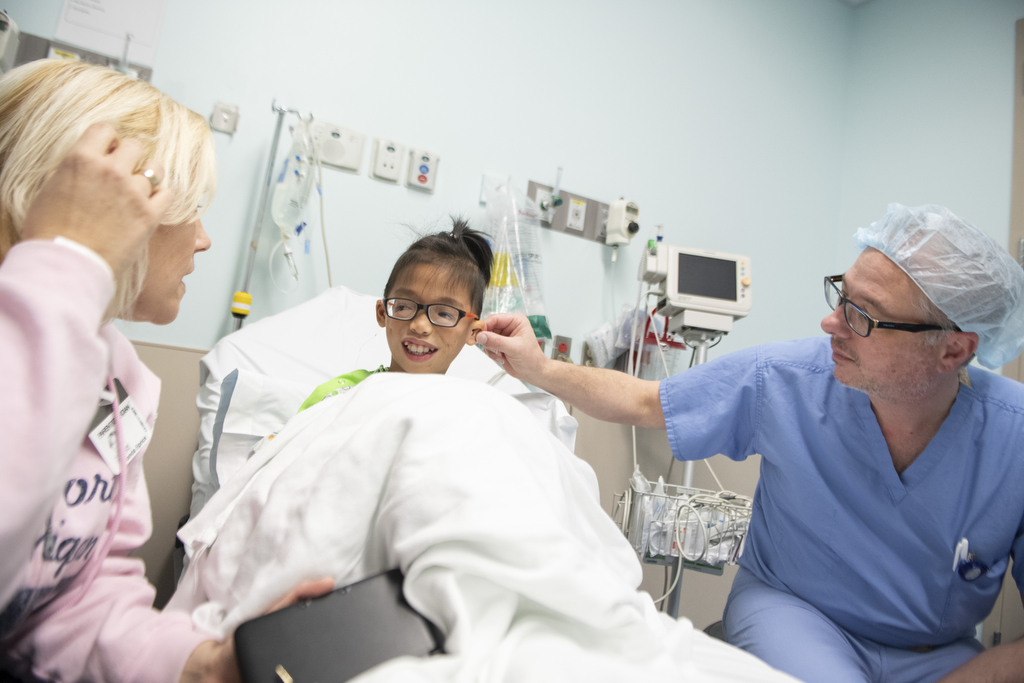
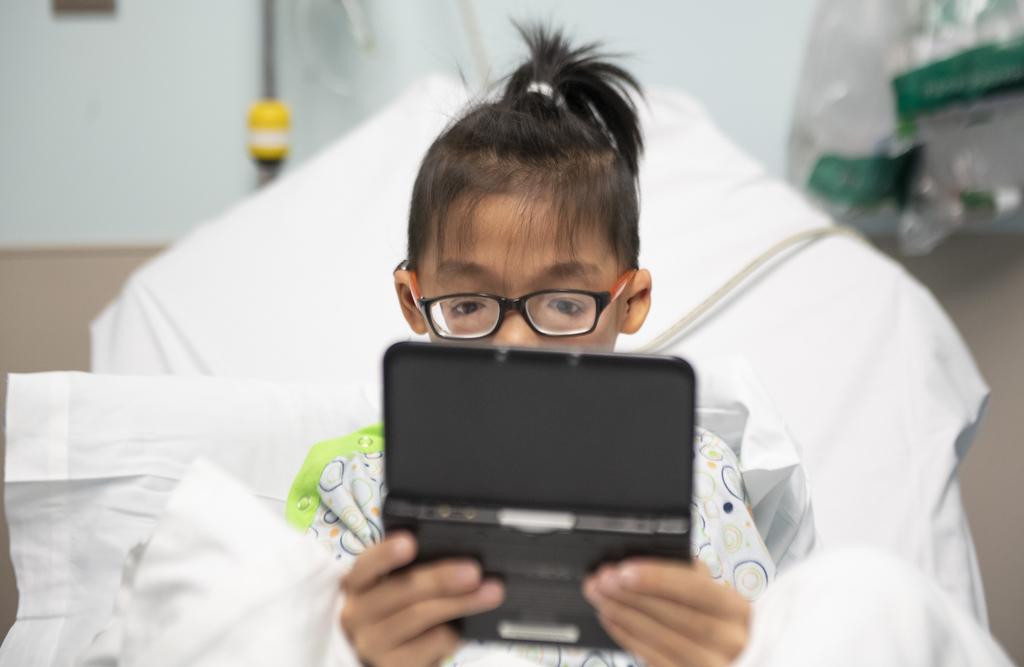
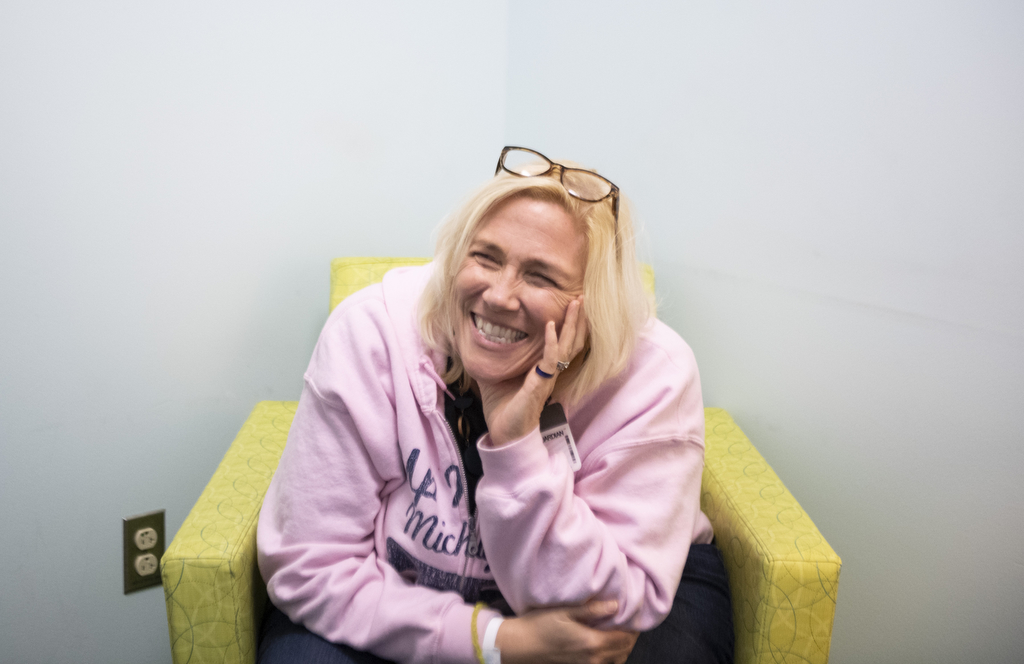
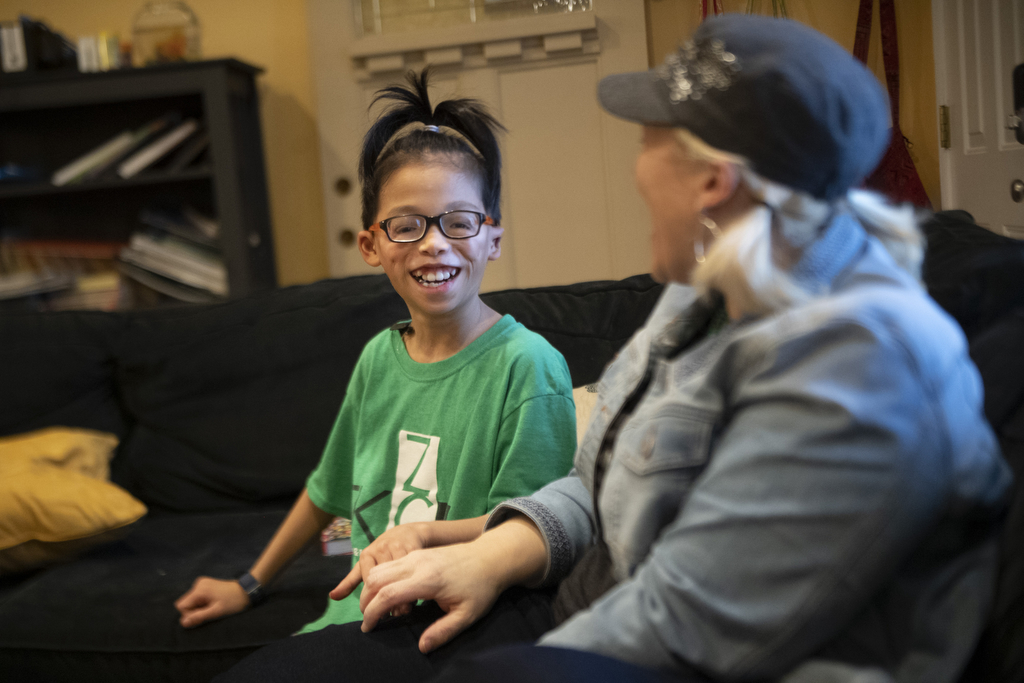
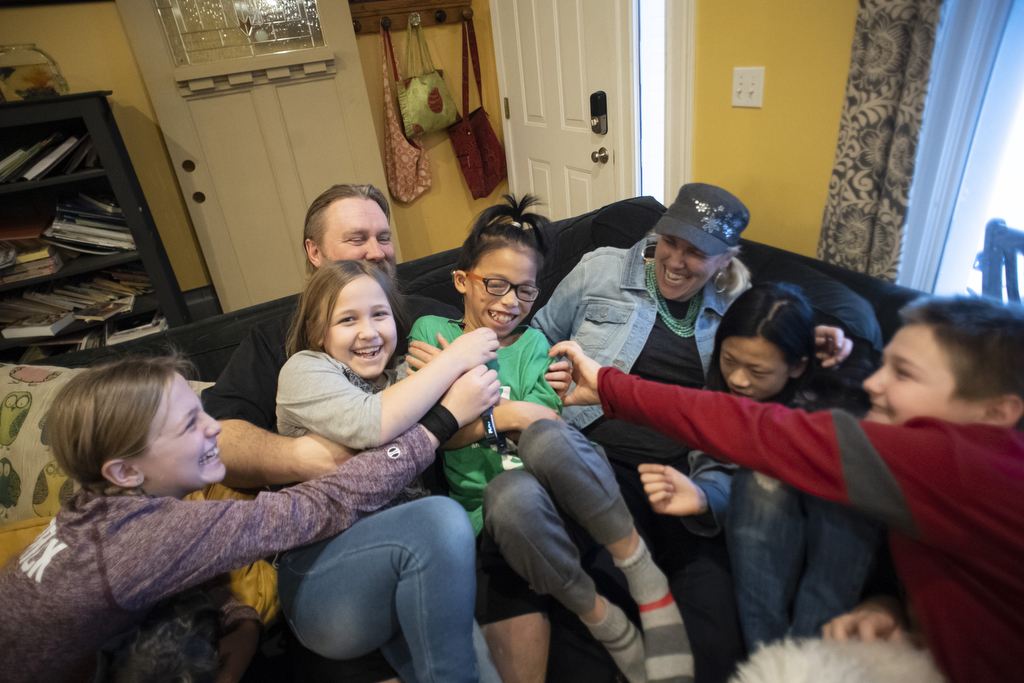
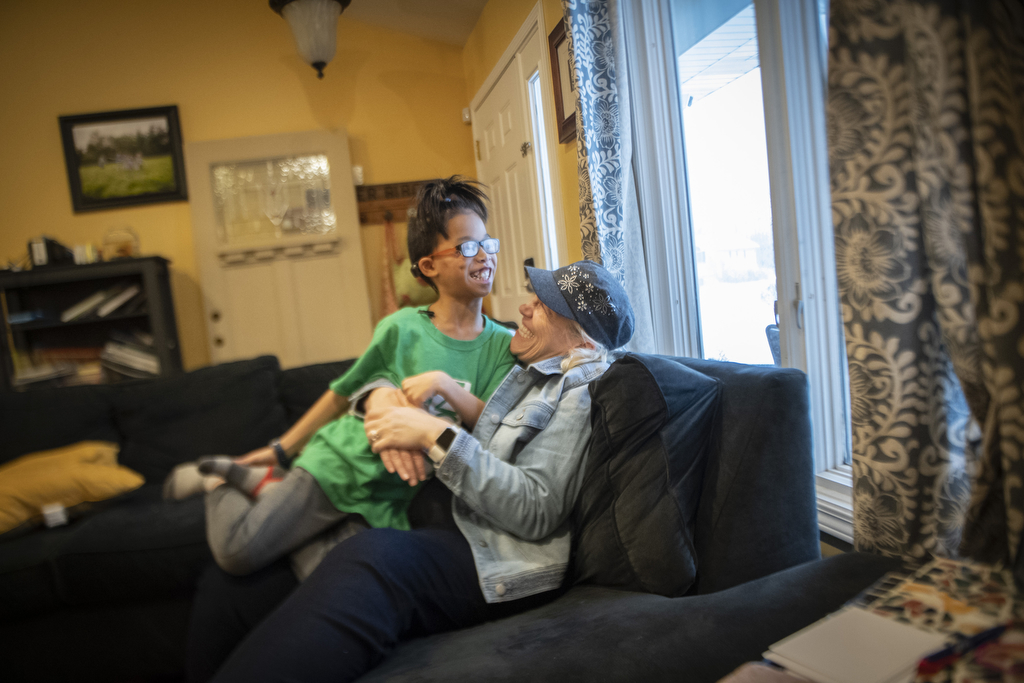
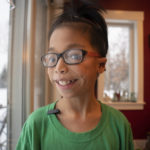
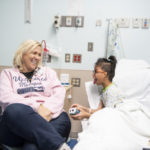
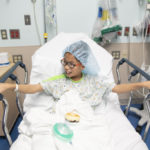
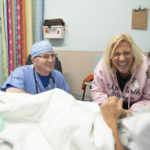
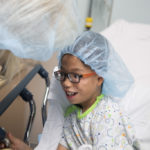
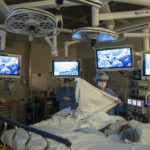













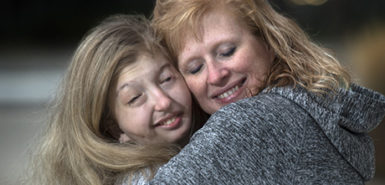 /a>
/a>
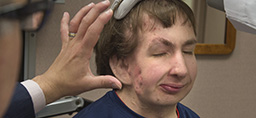 /a>
/a>
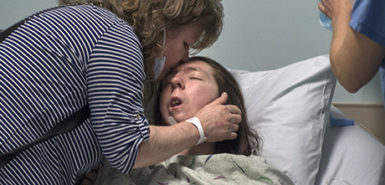 /a>
/a>
Way to go Michael- so thankful with you and your family!!
Amazing family with 5 amazing kids! They are all a gift to everyone who knows them. God knew what He was doing😉
Truly amazing family. Thank you, Linda, for your kind comment and for being a Health Beat reader! Cheers, Cheryl
Awesome